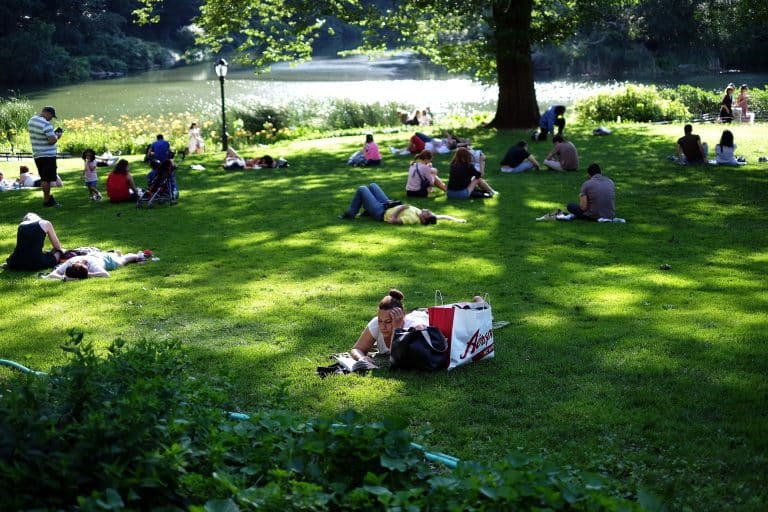
Image by Jewel Samad/Getty Images, © All Rights Reserved.
In Praise of Play and Idle Time
You’ve probably heard the soul-crushing statistics about how often people who get caught up in the criminal justice system end up back in prison after release. This revolving door is particularly pernicious for young people. Within three years of release, nearly two-thirds of them reoffend.
So what does it take to help young people have a successful transition into the civilian world?
It’s a question that design firm IDEO and some visionary leaders with the California Department of Corrections and Rehabilitation recently asked during an unusual collaboration. They talked to people currently in prison and those who had been out for a while about the resources and skills they felt that they needed most to stay out of prison.
Some of their ideas were unsurprising. They needed nurturing, unconditionally loving relationships — mentors and friends who would step in where family sometimes failed. They needed a way to set goals and keep track of their progress — some organized way to move forward with purpose and celebration. They needed housing and job prospects, of course.
But one of the things they expressed needing might come as a surprise; in order to successfully stay out of prison and rebuild their lives, they needed to learn how to have safe and legal fun. They needed to know how to fill their idle time, and right out of prison — as one might imagine — there is a lot of it. Particularly after being away from old friends and a beloved neighborhood for a while, it can be tempting to fall back into old habits and communities of belonging. But many times, as comforting and familiar as those spaces may feel, they can be dangerous ground for young people getting a second chance. The young men whom IDEO interviewed wanted to learn how to do photography, play the guitar, paint murals, even go hiking. The designers framed it as “positive play.”
Truth is, “positive play” is not just challenging or necessary for young people who have experienced jail time. All of us need healthy go-tos in times of emotional fragility or boredom. While as small children we have great instincts about how to fill our time (if given the time to fill, that is) with exuberant physicality and artistic creation and scientific exploration, it’s not long before we start reaching for numbing screens.
As insecure teenagers, idle time easily becomes testing ground. What we do with our time suddenly feels like a statement about our status in the world — are we theater geeks or cool jocks? Joiners or loners? Kids from elite backgrounds may appear to know how to engage in “positive play”; after all, their college CVs are filled with activities, but too often they are only stockpiling extracurriculars rather than learning how to be genuinely engaged with the world outside of classes. Those same kids can grow up to be adults who “work hard, play hard” — i.e. swinging perilously between workaholism and alcoholism. They’ve never learned how to de-accelerate and decompress, how to do something for the pure love of it rather than an external reward.
The adults I admire most in recent years are people who devote real time and energy to playing. They tend to be lifelong learners — finding new crafts and sports that they’re curious about and giving them a go. They let their curiosity, not their egos, lead — less attached to being “good” and more attached to having fun. They join nurturing communities centered around these activities — Carnivale dance crews and photography Slack channels and birding clubs. They spend significant time being restored by nature or prove incredibly resourceful teaching themselves things through YouTube. Some of them pick something and stick with it for years on end — becoming master weavers or beekeepers or low-rider car aficionados. Others flit around, going through seasons of excitement about a wider range of activities.
What unites these people is a sense of playfulness about their own identities and a creativity with which they approach their time. They know how to be alone. They learn something about themselves that those of us who endlessly complain about being “too busy” or go into autopilot when we’re off work, collapsing in front of the TV and drinking, do not. They have grounds for being proud of themselves, for surprising themselves, for growing and taking deep pleasure in something other than our modern false god: productivity.
Many of the guys that the IDEO designers interviewed told them that “idle time is the enemy.” Without the socialization or skills to fill our hours with play, there is a danger we will fill it with trouble or, less dramatic but still dangerous, fill it with, well, filler. We ostensibly go to sleep. Instead, when we play, we are awake — open to the full range of life’s pleasure and surprise.

Share your reflection